GEAB 141
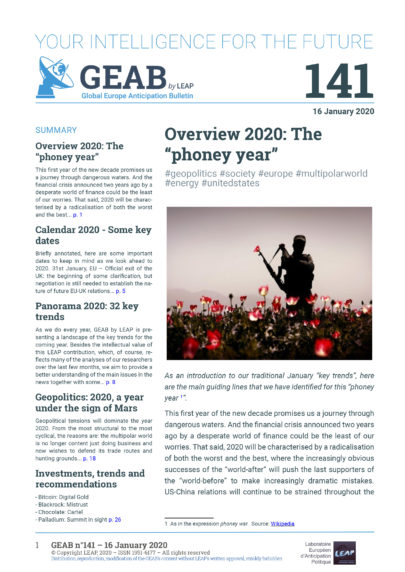
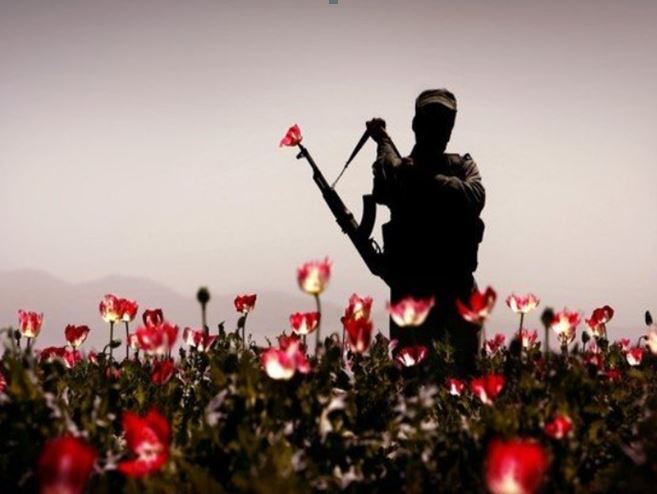
A non-exhaustive review of global risk by continents/regions
Geopolitical tensions will dominate the year 2020. From the most structural to the most cyclical, the reasons are:
- The multipolar world is no longer content just doing business and now wishes to defend its trade routes and hunting grounds (Europe, China, Israel, Turkey, Saudi Arabia, UAE, Iran and Russia are now fully fledged geopolitical players alongside the United States – i.e. defending their own interests abroad).
- At the heart of this multipolar world there is growing strategic rivalry between the US and China.
- In a context of multiplying battlegrounds and budgetary difficulties, the United States is being forced to rethink its priorities, leading to two disrupting developments:
Firstly, the resolution of past conflicts with a view to withdrawal (Middle East, Europe), creating two paths of disruption: resolution (action and concomitant risk-taking) and withdrawal (concerns and uncertainties linked to the disappearance of the American peacekeeper).
Secondly, US redeployment/reinforcement towards new strategic interests (Arctic, China, South America), creating obvious friction.
- Internal disagreements on strategy in the US, exacerbated by the context of an election campaign where two visions of America (old and new) are at loggerheads and where some are putting fuel on the fire with China in an attempt to derail the US-China trade agreement being negotiated by others.
- The growing prospect of a new International Monetary System that will inevitably challenge the central role of the US dollar raises an infinite number of questions about the risks to the US, forces it to restructure its economy and radicalises a camp determined to prevent such a development.
In such a context, however legitimate and forward-looking some of the pursued strategies may be, the risk of disaster is significant. In particular, a whole host of those with hidden agendas will try to take advantage of the movement of troops to advance their own pawns, helping to create inextricable and explosive situations (e.g. the electoral strategy of the Democrats, or a temptation of the newly re-elected President of Taiwan to propose a referendum on the independence of the island…). Based on this understanding of the intersecting trends in 2020, let us now review the risks, region by region.
Middle East: Experimental area in the multipolar world
Iran: The year started with a bang with a controlled (it is to be hoped) domino effect, triggered by the assassination in Iraq of the commander of the Al-Quds Force of the Islamic Revolutionary Guard Corps. Contrary to what everyone says, this was not an attack against Iran (a democratic state led by a moderate government) but against the state within the state – i.e. the Revolutionary Guards,[1] decreed a terrorist organisation by D. Trump in spring 2019.[2]
The first intent is to see what the outcome of this action would be. There are two possibilities: either the elected government and people is able to disassociate themselves from the Revolutionary Guard and the US attack helps the Iranians to free themselves from the latter (moving away from a war scenario),[3] or the government and the people show solidarity with the Revolutionary Guard and Iran can be treated as a fully-fledged enemy (this is, of course, a war scenario).
Of course, the Iranians initially united behind the heroic figure of Suleimani.[4] However, after the Ukrainian plane was shot down[5] (whose passengers were mostly of Iranian origin),[6] another part of the Iranian population took to the streets – this time against the Mullahs’ regime.[7]
The second intent is to trigger a trickle effect where the Iranian militias (led by Suleimani) leave Iraq. This is not impossible: since Moqtada al-Sadr[8], Iraq has made it clear that it neither wants US troops nor Iranian militias on its territory. The American attack against Suleimani is allowing the Iraqis to demand the withdrawal of US troops, whose presence threatens the security of the country – a demand to which the Americans could well respond, “We are not leaving as long as the Shiite militias remain.” Thus, the Iraqis can demand the departure of the Iranians at the same time.[9] Here again, let’s see how the situation continues, but if everything works as planned, Iraq could soon be free of its double occupation. Such an outcome would serve the United States of Donald Trump admirably since, as we have said, it needs to redeploy troops to more strategic locations. Similarly, it would benefit Iraq, which would recover its “freedom”… as well as Israel, which would experience a first breach in its encirclement, knowing this would isolate the Syrian and Lebanese Shiite militias from their Iranian base. In short, it would be the beginning of the end of the famous “Shiite corridor”.[10]
Libya-Syria: There are many things to be said about this strategy but we will focus on the essentials. In particular, the fact that Turkey and Russia are involved and have already negotiated some “small” benefits:
- Turkey, with the agreement of Russia, is charged with pacifying Libya by getting everyone (UN, United States, UAE, Turkey, France, Russia) to agree on the al-Sarraj solution – which is good news for democracy and for the UN (and thus international order), which was also on al-Sarraj’s side
- Russia, with the agreement of Turkey (and with the tactical help of Israel?[11]), is charged with finalising the stabilisation of Syria by eliminating all armed troops except the legitimate ones – including, of course, the Shiite militias.
If we are right, we have a fine case of cooperation in the multipolar world where the US, Israel, Turkey, Russia and Europe seem to be in agreement. Of course, “the map is not the territory” as they say in the military. While we are more or less certain that the present strategy is along these lines, the unexpected is still possible… such as Iran’s ability to implement a future-bearing solution or the risks of seeing the Iraqi Shiite population take up the cause of Iran again, etc.
South America: No multipolar world
South America is somewhat anti-Middle East in the sense that its status as a hunting ground of the US is currently being reaffirmed there. Everything is centred around Venezuela, a sort of Latin American Iran: a major oil resource and a regional adversary that is trying to play alliance-making games (with Russia) that are unacceptable to the American power. Venezuela has become the focus for:
- The final outcome of the Cold War that was played out in the region in the past
- The reaffirmation of the US strategic domination over the subcontinent (Chinese and Europeans can trade with the region, but strategic control must be in the sole hands of the United States)
- Future energy security for the United States
As a consequence, South America is undergoing a “witch-hunt” type of operation intended to get rid of the last “communist” stronghold in the region, namely Venezuela (Cuba won’t resist Maduro’s fall for long), which is threatening to ask the Russians to install a military base at La Orchila.[12] In order to achieve this, old methods are being applied (networks of influence, cloak-and-dagger operations, coups d’état…) and legitimate governments are falling (Ecuador, Bolivia…) for the sole reason that they support Maduro and prevent the Lima group[13] from allying against him.
The American withdrawal from the Middle East is only made possible because Venezuela is the United States’ next hydrocarbon supplier. As previously said, shale oil and gas will permit the US to hold out until 2024; perhaps less than that.[14]
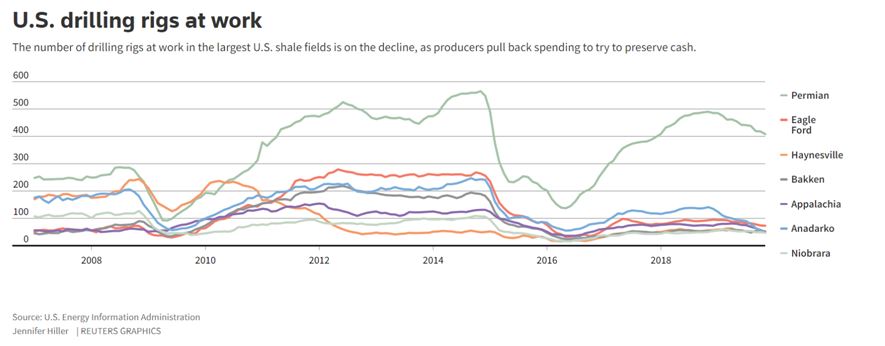
Figure 1 – Status of US drilling rigs at work, 2008-2018. Source : USEIA / Reuters
By that time, the Venezuelan reserves must be “liberated from communism”. And in 2020, the Americans will become nervous if they cannot guarantee their privileged access to a cheap resource, while prices soar due to the tensions they are helping to generate. War of the past (anti-communism) and war of the future (energy security): the events that are bound to develop this year around Venezuela belong to both categories. So far, the method used to bring down Maduro’s regime has been “political”. However, not so long ago, Pompeo mentioned the possibility of military intervention.[15] What would Russia do if the United States went as far as this, knowing the interests it has in Venezuela[16] and the express request for military support that would inevitably be made by Maduro? Almost certainly, nothing. That is why it might be in the interests of the US to intervene, if only to clarify this point. But military intervention is always a strategic failure (the Lima Group’s strategy in this case) and only seeds future conflicts.
China: The ‘pearl necklace’ strategy
In the long run, confidence in China’s ability to manage its neighbourhood peacefully in a reinvented international framework will impose itself. The trend is inescapable; all of China’s policies allow us to anticipate it (OBOR, RCEP, SCO, etc.). China weaves its threads in an efficient, legitimate, concerted, peaceful and sustainable manner, whatever most of our media say. But in 2020, it’s the “Asian pivot” advocated by Obama which is at work. It serves both Trump’s trade negotiations (bargaining chip) and the original goals of protecting US allies and interests in the region. As said before, the internal political context in the US aggravates the risks inherent in the pursuit of these objectives – all the more so as they really have nothing to do with the region concerned. This is why we have identified significant risks to peace on this side of the world this year.
The bipartisan defence budget signed by Trump in December[17] is certainly a reason for concern: it not only shows an increase in spending (USD 738 billion, or 22 billion more than last year!) but, more importantly, it includes content that resolutely targets China, by putting the US in charge of protecting Taiwan, Hong Kong and the Muslims of Xinjiang, and by strengthening the legislation against Huawei.[18] With this budget, the US has switched Cold War.
North Korea: While Trump identified the North Korean situation as an outdated deadlock, his establishment did not let him go through with his strategy. Obviously North Korea remains one of the pearls in the necklace with which the US intends to surround China in order to constrain its expansion. The aim of the operation is to maintain their bases in South Korea despite the South Koreans’ desire to get rid of them.[19]
Hong Kong/Taiwan: These two other pearls are at the heart of the battle between the two giants. While Hong Kong made headlines in 2019, Taiwan is expected to replace it in 2020. But Taiwan is the red line between the two players.[20] Just as Putin could not accept a NATO flag on the port of Sevastopol in Crimea, China will not run the risk of seeing an US military base set up there as a consequence of the island’s independence. Unfortunately, Tsaï, the president who has just been re-elected, seems quite fanatical. If she ever tried to organise an independence referendum in the current context, China would probably have no choice but to invade the island to block the process and the US would then be forced to come and defend its protégé. As we have seen, the context of the US election campaign is not conducive to restraint. The domino effect would be dramatic and we can’t really see what would stop it. This is one of the scenarios that worries us most in 2020.
Indonesia: In the China Sea, it seems to us that too many players have an interest in resolving tensions. If the skirmishes between Indonesian and Chinese fishing vessels are increasing worryingly these days, cooperation embodied in the RCEP and ASEAN-China provide a framework for negotiations that are a priori fruitful. However, the issue of the Uighur internment camps and China’s Muslim policy seems to be contributing to a hardening in tone by the Muslim countries of the South China Sea: Malaysia and Indonesia are joining with Vietnam to file a complaint against China at the UN, thus going beyond the China-ASEAN negotiating framework.[21] But we do not think that any of them are really going to clash. Also, it is more reasonable to address the UN than the US. The Philippines, moreover, recently reached the first real South China Sea agreement with China[22] on how to cooperate, and that should lead the way.
Xinjiang-Myanmar: On land, the containment strategy is at work, too. Xinjiang is a border region where the American strategy of defending Muslims has every chance of favouring independence movements, weakening the country’s western flank in a way that is unacceptable to China. In Myanmar, the US and China are clashing in the border region of Kachin where, once again, the Americans are playing the human rights card to undermine China’s development aid work with the government,[23] creating an ominous situation.
India: Inaugural wars of the 21st century?
Nobody talks about India, and that’s the problem. Apart from the Guardian, the “holier than thou” West is closing its eyes to the most unacceptable domestic policy of the beginning of this century, a policy inspired by (or even inspiring) the principles of Nazi ethnic cleansing – this time, targeting Muslims.[24] At the same time, it is threatening neighbours (Pakistan and China) and installing at the heart of its state apparatus a system close to that of the Iranian Revolutionary Guards i.e. religiously founded (Hindu), politically aimed (protecting the Hindu diaspora and establishing the power of an ethnically pure India) and economically endowed (the flagships of the Indian economy are in the hands of “Hindu devouts” because of the role the economy needs to play in the ideological unification of the country).[25]
The Citizenship Act is provoking violent reactions not only from stigmatised Muslims but also from many advocates of a secular model of society. It is also aggravating the separatist tendencies of the states in southern India (Andhra Pradesh, Karnataka, Kerala and Tamil Nadu, and the territories of Lakshadweep and Pondicherry[26]), which provide a favourable breeding ground. One of these states, Kerala, has taken the lead in a civil disobedience movement, with the result that, to date, 14 states have decided not to apply the controversial law.[27]
Logically, Modi should step back, but if this law is deemed quintessential to the mission of his second government, other scenarios can be set up, ranging from civil war (the pro-RSS/BJP camp is notoriously violent) to war on the Pakistani or Chinese borders[28] (a classic method of closing the ranks within a country). As far as an Indo-Chinese confrontation is concerned, the US attitude towards China in an election year could make Modi/Shah believe in potential US support for such an initiative and encourage him to take the crazy step of dragging everyone into the catastrophe. Regarding an Indo-Pakistani confrontation, it would be the last straw that could trigger a complete breakdown in the delicate management of the Middle East situation.
In addition to these political tensions, an immense economic pressure (strong slowdown anticipated for 2020[29]) and ecological pressure (water crisis[30]) weighs on the country… In other words, even if Modi goes back on the law, India will remain the socio-political and geopolitical time bomb we described in April 2018 for as long as this government remains in power. The problem is that the opposition is deemed corrupt and ineffective… It is in this part of the world that the greatest challenges to world peace are being played out this year.
Africa: Battleground of the multipolar world
Africa might well be the cake to be shared by the winners in the Middle East and the transformations that will affect the Middle East this year may cast strange and unexpected shadows on the African continent.[31] In Muslim Africa, Saudi Arabia[32], Iran[33], Israel[34], UAE[35] and Turkey[36] are advancing their pawns. We have already seen in these pages that the region of the Bab-el-Mandeeb Strait (Yemen, Horn of Africa) is particularly fragile in the absence of a legitimate regional supervisory organisation (Saudi Arabia has just filled this void recently by launching the New Red Sea Alliance… from which key players are excluded, one suspects). [37]
Like Hong Kong, ASEAN or Europe, Africa will find itself caught up in the American-Chinese rivalries, in particular, in 2020. Russia has decided to regain a foothold (via Libya) on this continent.[38] Europe, for its part, is seeking to strengthen its hold too (France and England in particular). All these “friends” can bring prosperity to Africa if its Union is powerful enough. If not, they will bring war and exploitation. It is therefore up to its best friends to deal as much as possible with the African Union in order to strengthen it. We know that China is already doing so. Let’s hope that its sister, the EU, will do the same – it is the least it could do. It is also time for the most powerful countries on the continent to play their role as regional players. Ethiopia’s request to South Africa to act as an intermediary in the Egyptian-Ethiopian crisis is a step in the right direction. Africa, with a strong union led by strong engines, will be able to make the most of the multipolar world, but the continent is now facing new dangers.
Europe: Trials at the borders
Europe is the trophy of Russian-American-Chinese rivalries: nobody wants to spoil the beautiful market it represents, but everyone covets it and the mob bustling around it soon started to bruise it. The pressure will intensify this year. The points of tension that we anticipate in 2020 are:
- In Belarus, where Lukashenko, President for the past 25 years, is playing a strange game in a year of re-election, betting on China to counter Russian zeal, without relying on the West. That said, this strategy provides a great opportunity for dialogue and Euro-Russian rapprochement.
- In Greece, where we have seen that the new Prime Minister, Mitsotakis, has been playing a 100% American card to advance his pawns in the Balkans and especially in the Eastern Mediterranean, in a move close to a Grexit. Fortunately Trump doesn’t seem very interested in Mitsotakis’ whining about Turkey.[39]
- In the Balkans, the powder keg is still in place – except that the Euro-Russian rapprochement, combined with the Russian-Turkish rapprochement, makes it possible to envisage jointly agreed solutions.
- In Portugal, which we have identified as a potential target for shenanigans designed to weaken the current government in connection with Macau (the anti-Hong Kong) and Brazil (Bolsonaro). No war, of course, but a destabilising point in Europe all the same.
- In Denmark, in connection of course with Greenland and the multiple appetites that the melting of the poles has aroused around this wild island-continent.[40]
Arctic: Wars or future governance?
Wars over the Arctic probably won’t really see the light of day in 2020, but the Arctic is already a key interest guiding a number of strategies putting the US, Canada, Europe, the Nordic countries, Russia and China in opposition.
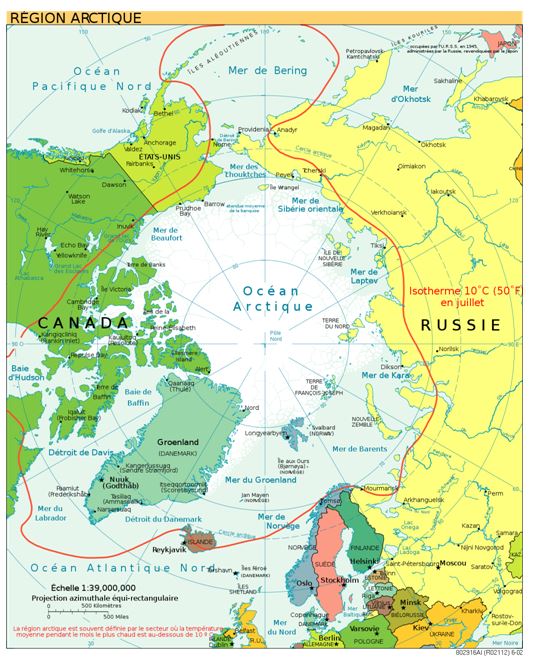
Figure 2 – Map of the Arctic region
Anticipation of the wars to which it may give rise makes it possible to imagine that it will also provide a fine testing ground for future pluri-national governance models. The extension of the Arctic Council’s areas of competence[41] would be a major step forward in this direction from 2020 on. But in a wonderful world, the Arctic could give rise to the creation of the first continent of humankind, where the entire planet would be declared the owner of the circle.
__________________________
[1] Source: RadioFreeEurope, 07/01/2020
[2] Source: The Guardian, 08/04/2019
[3] Not surprisingly, the Israeli media are keeping a close eye on this kind of development. Source: Times of Israel, 13/01/2020
[5] Why Ukrainian? Because Iranian decision-makers in the plane crash lend credence to rumours that Ukraine is ready to serve as a fallback zone for the Ashkenazi Israelies in the event of a regional conflagration – a rumour that we have already elucidated in these pages because it is present in the minds of important players, such as some Iranians obviously. So, the message is clear to the Israelis who also know this scenario too: Get ready to pack your bags!
[6] The crash took 176 lives. Along with the 82 Iranian passengers, most of the 63 Canadian victims belonged to the Iranian community in Canada. Source: KyivPost, 08/01/2020
[7] Source: AlJazeera, 14/01/2020
[8] Source: Carnegie-MEC, 14/06/2018
[9] Done, too! Source: Newsweek, 09/01/2020
[10] Source: Borysfen Intel, 17/07/2018
[11] Unless there is a risk of breakdown on this front. Source: AlJazeera, 15/01/2020
[13] The Lima Group was established in 2017 for the sole aim of finding a peaceful solution to the Venezuelan problem.
[14] This is not the dominant thought. We are aware of this and you are free to form your own opinion on this subject. But we continue to think that the American shale adventure is a sham, primarily serving the purpose of cheap oil for a failing US economy. According to many articles, the US will launch its 2nd wave of shale oil in 2024. In the meantime, the wells are almost at a standstill, see above. Self-regulation or dry wells? Source: Reuters, 02/01/2020
[16] Source: Forbes, 06/05/2019
[17] Important to note that the Congress, Senate and White House have all easily approved such a budget and agenda. Source: The Intercept, 10/12/2019
[19] Source: The Atlantic, 17/05/2018
[20] Source: The Diplomat, 01/05/2016
[21] Source: Forbes, 10/01/2020
[22] Source: OilPrice, 17/12/2019
[24] We have spoken many times about Kashmir, the citizenship law, the anti-Muslim violence, the RSS, Modi’s Minister of Home Affairs… All this is working to unify India into “Hindu-land”.
[25] The connection between religion and business is not new (source: EconomicTimesofIndia, 09/05/2015) but it is now being established (source: FreeMalaysiaToday, 20/12/2019) allowing the state Hinduism to seize power sustainably.
[26] Which aren’t new. Source: International Business Times, 10/03/2013
[27] Source: Anadolu Agency, 15/01/2020
[28] Indo-Chinese relations around the Himalayan water tower (Tibet-Nepal) are more than tense, driven by a violently (and probably more uniformly) anti-Chinese Indian public opinion.
[29] Source: IndiaToday, 10/01/2020
[30] Source: The New Indian Express, 12/01/2020
[31] Source: AfricaNews, 06/01/2020
[32] Source: Middle East Monitor, 07/01/2020
[34] Source: JerusalemPost, 25/10/2019
[35] Source: GulfNews, 17/11/2019
[36] Source: Brookings, 19/05/2019
[38] Source: Tandfonline, 20/12/2020
[39] Source: Ekathimerini, 09/01/2020
[40] We have described the risks in the key trends for 2020 article.

As an introduction to our traditional January “key trends”, here are the main guiding lines that we have identified for this “phoney year ”. This first year of the new [...]
Briefly annotated, here are some important dates to keep in mind as we look ahead to 2020. 31st January: EU – Official exit of the UK The beginning of some [...]
As we do every year, GEAB by LEAP is presenting a landscape of the key trends for the coming year. Besides the intellectual value of this LEAP contribution, which, of [...]
Bitcoin: Digital Gold The fairly sharp rise in the price of Bitcoin at the time of the Iranian-American crisis confirms the intuition we had in June: Bitcoin is acting as [...]

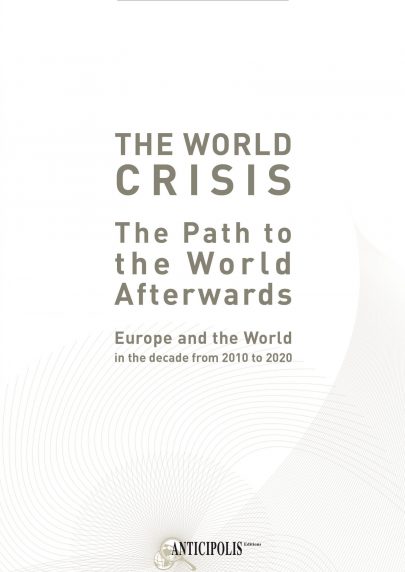
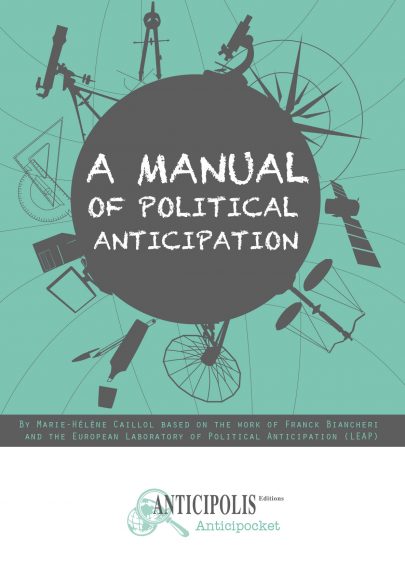
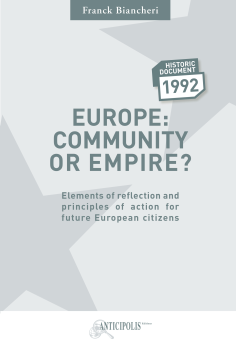
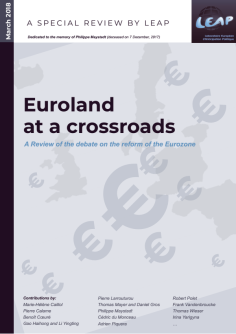
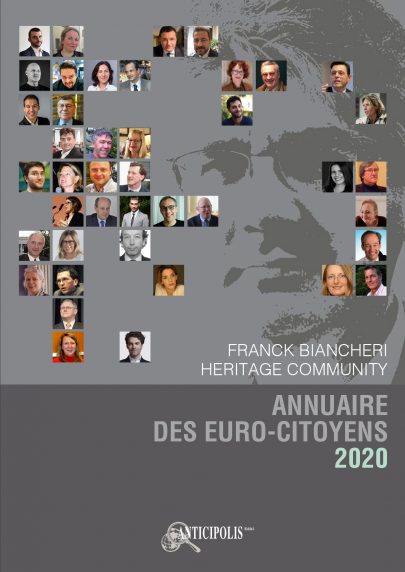
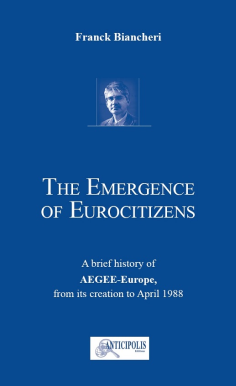

Comments